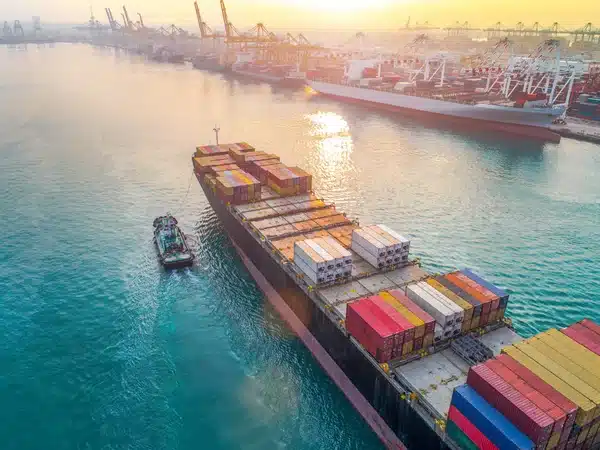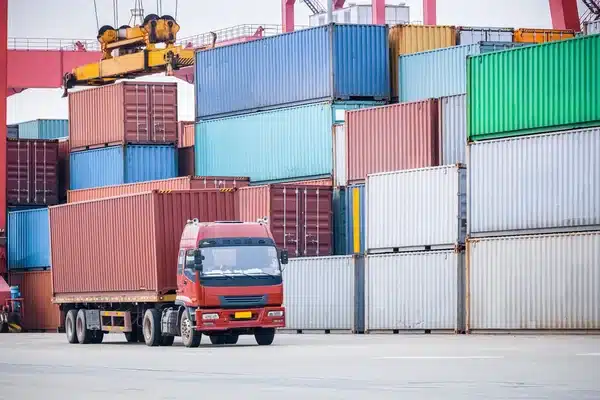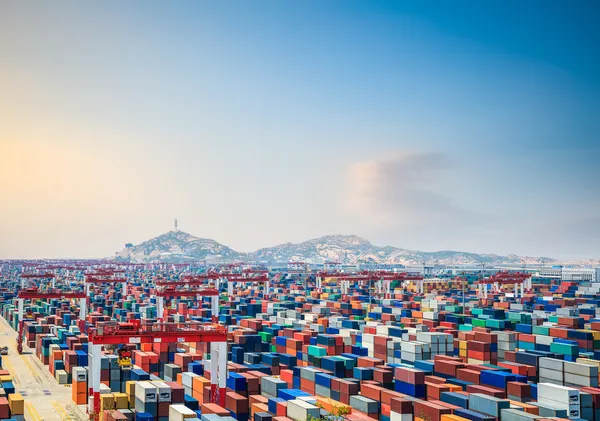Efficient container management plays a vital role in international shipping and logistics, particularly for high-volume trade routes like China to the USA, UAE, and Russia. Terms such as container-free rental and stack-free describe practices designed to enhance efficiency, minimize costs, and streamline operations at ports and terminals.
This article explains these terms in detail and explores their relevance to global trade and logistics, particularly in key markets like the USA, UAE, and Russia.

Container-Free Rental
Definition
Container-free rental is a logistics practice that allows businesses to use shipping containers without incurring rental fees for a specified period after delivery or discharge at the destination port. This arrangement is typically part of agreements between shipping companies and consignees.
Key Points
1. Free Days
- Shipping lines usually provide 5–7 free days for consignees to unload the cargo and return the container.
- After this period, the following charges may apply:
- Demurrage Fees: For occupying space at the port.
- Detention Fees: For holding the container beyond the free rental period.
2. Benefits
- Cost Savings:
- Significantly reduces immediate cost pressures, particularly for businesses dealing with high shipping volumes, such as those importing from China to the USA or China to the UAE.
- Efficiency Boost:
- Encourages faster unloading and container turnaround, improving operational efficiency at busy ports like Los Angeles, Jebel Ali, or St. Petersburg.
Example Scenario
A business importing consumer electronics from China to the USA receives a shipment at the Port of Los Angeles. The shipping company provides 7 free rental days for unloading. The company efficiently organizes its logistics, completes the unloading within the free period, and returns the container to the depot. This avoids additional charges, saving the business hundreds of dollars in potential fees.
Relevance to Key Routes
- China to USA: Helps manage high volumes of consumer goods, including electronics, textiles, and machinery.
- China to UAE: Essential for industries importing luxury items, construction materials, or textiles.
- China to Russia: Reduces delays at ports like Vladivostok and improves the efficiency of complex logistics operations.
Understanding container-free rental terms is crucial for businesses navigating global logistics. Partner with Tonlexing for expert support in managing shipping processes, optimizing costs, and ensuring timely delivery of goods.
Stack-Free
Definition
Stack-free refers to the strategic organization of shipping containers at ports, terminals, or warehouses to avoid excessive stacking. This operational approach enhances efficiency, reduces congestion, and ensures seamless container retrieval processes.
Key Points
1. Reduced Congestion
- Stack-free operations prevent delays caused by retrieving containers buried under others.
- Helps to improve traffic flow and cargo handling at busy ports and terminals.
2. Efficient Logistics
- Commonly implemented in modern, high-volume ports like Dubai’s Jebel Ali Port, which handles a significant portion of trade between China and the UAE.
- Advanced systems, including automated container tracking and sorting, reduce manual interventions.
3. Benefits
- Faster Access: Quick retrieval of specific containers shortens turnaround times.
- Reduced Damage: Minimizes the risk of container wear and tear often associated with excessive stacking.
- Cost Savings: Reduces labor and equipment usage, optimizing overall logistics costs.
Example Scenario
A shipment of construction materials from China to the UAE arrives at Jebel Ali Port, where stack-free operations enable immediate access to the containers. This policy ensures the shipment clears customs swiftly, avoiding additional port storage fees and reducing delivery times.
How These Practices Benefit Global Logistics
1. Cost Savings
- Stack-free policies help avoid unnecessary delays and additional handling costs, benefiting key trade routes like:
- China to Russia: For industries transporting machinery and heavy equipment.
- China to the USA: Particularly for high-demand consumer goods like electronics and apparel.
2. Operational Efficiency
- Modern ports such as Shanghai, Dubai, and St. Petersburg leverage stack-free practices to improve cargo flow and reduce dwell times.
- Industries like textiles, machinery, and perishables benefit from faster processing and delivery.
3. Optimized Planning
- Stack-free practices ensure smoother container management, enhancing the ability to manage returns and plan shipping schedules effectively.
Why Stack-Free Matters
Ports adopting stack-free operations allow businesses to:
- Improve supply chain efficiency by minimizing port-related delays.
- Streamline operations on major routes like China to UAE, China to Russia, and China to Germany.
- Enhance reliability, ensuring goods arrive on time and in optimal condition.
To ensure your logistics benefit from efficient port operations, partner with Tonlexing for seamless, cost-effective shipping solutions. Contact us today to streamline your global supply chain!

How These Practices Benefit Global Logistics
1. Cost Savings
- Container-Free Rental Policies:
- Leveraging container-free rental agreements helps businesses avoid demurrage (port storage fees) and detention fees (container usage fees).
- Particularly valuable on high-volume trade routes like China to Russia, where managing costs is critical for industries shipping heavy machinery or large volumes of goods.
- Example: A company shipping textiles from China to Germany can save significantly by returning containers within the free rental period, avoiding extra fees.
2. Operational Efficiency
- Stack-Free Policies:
- Ports such as Shanghai, Dubai (Jebel Ali Port), and St. Petersburg implement stack-free strategies to improve cargo flow.
- Reduces the time needed to retrieve specific containers, ensuring faster transit times for industries like:
- Electronics: Rapid delivery to meet demand.
- Textiles: Timely restocking for seasonal trends.
- Machinery: Minimizing delays for project-based shipments.
- Improved efficiency also helps prevent bottlenecks during peak shipping seasons, such as Chinese New Year or global trade surges.
3. Optimized Planning
- Streamlined Logistics Schedules:
- Container-free and stack-free practices enhance the ability to manage container returns and plan shipping schedules more effectively.
- This is particularly beneficial on routes like:
- China to UAE: For businesses shipping construction materials, where timely delivery is critical for ongoing projects.
- China to the USA: Managing peak-season shipments of consumer goods efficiently.
- With better planning, businesses can reduce lead times and enhance supply chain reliability.
Why These Practices Matter
- Improved Cash Flow: Avoiding unnecessary fees directly impacts profitability.
- Faster Delivery Times: Optimized port operations ensure goods reach their destination promptly.
- Enhanced Supply Chain Resilience: Reliable planning and cost management support business growth in competitive markets.
By adopting strategies like container-free rental and stack-free operations, businesses can capitalize on streamlined logistics and reduced costs. For tailored shipping solutions on global routes like China to the USA, China to Germany, and beyond, partner with Tonlexing for expert support and reliable services.
Relevance to Key Trade Routes
1. China to the USA
- Key Ports: Shanghai (China) and Los Angeles (USA).
- Impact of Container-Free Rental Practices:
- Facilitates cost-effective management of high-volume shipments, particularly for electronics, machinery, and consumer goods.
- Businesses benefit from reduced demurrage and detention fees, ensuring smooth supply chain operations.
- Example: A company importing home appliances from Shanghai to Los Angeles can avoid additional costs by leveraging the 7-day free rental period, expediting container returns.
2. China to the UAE
- Key Port: Jebel Ali Port (Dubai).
- Impact of Stack-Free Policies:
- Ensures seamless handling of high-value shipments like textiles, luxury items, and construction materials.
- Reduces congestion and retrieval times, particularly for industries requiring time-sensitive deliveries.
- Example: A shipment of construction equipment from China arrives at Jebel Ali Port. The stack-free policy enables quick clearance, minimizing delays and port fees.
3. China to Russia
- Key Port: Vladivostok (Russia).
- Impact of Stack-Free Practices:
- Efficiently manages seasonal trade surges, particularly during peak demand for machinery, heavy equipment, and industrial goods.
- Addresses complex customs requirements by streamlining container retrieval and clearance.
- Example: A machinery shipment from China to Vladivostok benefits from faster processing, ensuring timely delivery for infrastructure projects in Russia.
Why These Practices Are Critical
Cost Management:
- Reduces unnecessary fees on major trade routes, allowing businesses to allocate resources more effectively.
Operational Efficiency:
- Ensures smooth handling of large volumes, avoiding bottlenecks at critical ports.
Improved Reliability:
- Supports consistent and timely delivery, strengthening supply chain performance across key global markets.

Why Choose Tonlexing for Logistics Solutions?
Tonlexing offers comprehensive, end-to-end logistics services designed to streamline international shipping for key routes, including China to the USA, China to the UAE, and China to Russia. Our tailored solutions ensure efficiency, transparency, and cost savings at every step of your supply chain.
What We Offer
1. Container Management Expertise
- Leverage our knowledge of container-free rental and stack-free policies to reduce fees and improve efficiency.
- Avoid unnecessary costs like demurrage and detention by optimizing container turnaround times.
2. Global Logistics Solutions
- Sea Freight: Cost-effective solutions for high-volume shipments.
- Air Freight: Fast and reliable shipping for urgent or high-value goods.
- Multimodal Transport: Seamless integration of sea, air, and rail for optimized shipping efficiency.
3. Transparent Pricing
- Clear, detailed cost breakdowns eliminate surprises.
- Gain insights into potential savings by managing container usage effectively.
4. Customs Support
- Expert Clearance: Hassle-free customs processing for shipments to destinations like the USA, UAE, Germany, and Russia.
- Ensure compliance with local regulations, minimizing delays and additional costs.
Why Tonlexing?
- Tailored Solutions: Customized services for businesses in industries like electronics, textiles, construction materials, and machinery.
- Proactive Support: 24/7 assistance to address challenges and streamline your logistics operations.
- Experience You Can Trust: Years of expertise in managing complex supply chains and global shipping routes.
Contact Tonlexing Today!
Optimize your logistics processes and unlock cost-saving opportunities in global trade. Contact us now for expert guidance, or explore related articles on our website to learn more about shipping routes and solutions tailored to your business needs.


